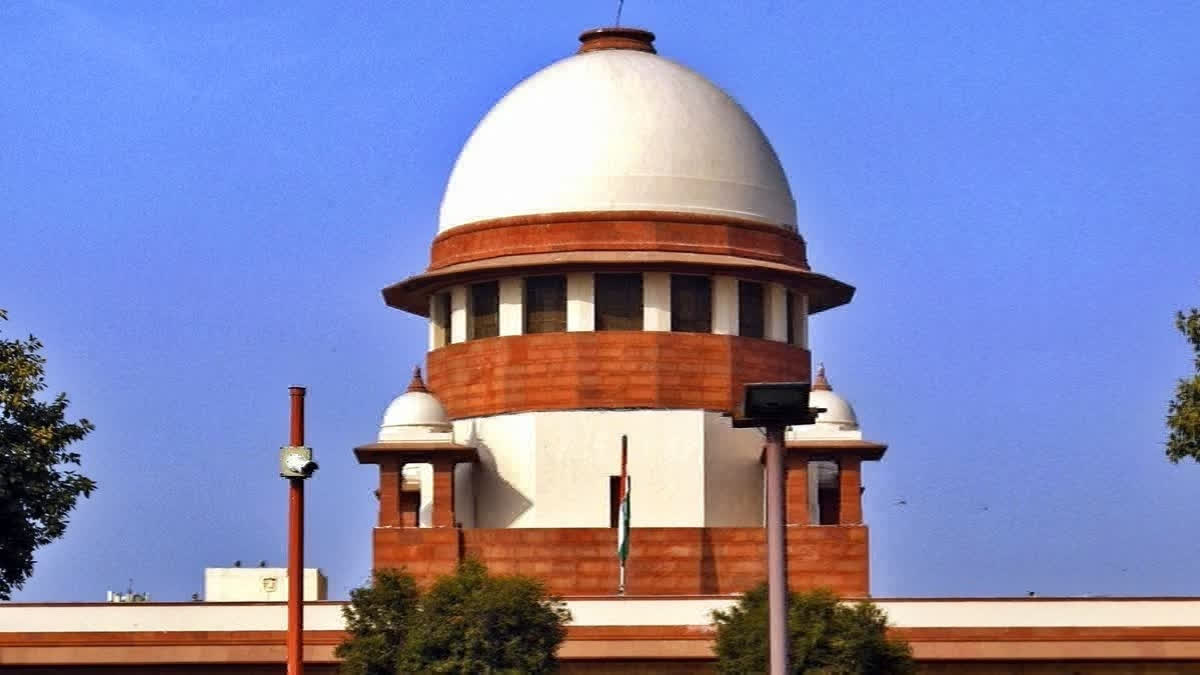New Delhi: Senior advocate Vijay Hansaria has urged the Supreme Court to consider imposing a life ban on convicted lawmakers for certain offences mentioned in the Representation of the People Act (RPA). The counsel, acting as an amicus curiae, stressed that RPA, which limits the disqualification for a period of six years since the release of the convict, is manifestly arbitrary and violative of Article 14 of the Constitution.
Hansaria, in a report submitted before the apex court, said there is no nexus for limiting the disqualification for a period of six years since the release of the convict with the object of disqualifying him from becoming a member of the legislature.
“The provisions of sub-sections (1), (2) and (3) of section 8 to the extent they provide that shall continue to be disqualified for a further period of six years since his release is manifestly arbitrary and violative of Article 14 of the Constitution”, said the report.
Hansaria pointed out that there are many statutory authorities who are permanently disqualified from holding the posts upon conviction.
The report said it is manifestly arbitrary that such convicted persons can occupy the supreme legislative bodies after the expiry of a certain period of conviction. Hansaria stressed that the lawmakers are required to be much more sacrosanct and inviolable than the persons holding office under such law. “The parliamentarians and the legislators represent the sovereign will of the people and once found to have committed an offence involving moral turpitude, are liable to be permanently disqualified from holding the said office”, said the report.
The counsel, in his 19th report filed in the case of Ashwini Kumar Upadhyay related to the expeditious trial of MP and MLAs, along with associate Sneha Kalita suggested the court to examine the matter independently.
He said Parliament has categorised the offences for the purpose of disqualification depending upon the nature, seriousness and gravity thereof and the impact on the society at large. “In case of Specified Offences Category I, even a sentence of fine incurs disqualification; while in case of Specified Offences Category-II, a minimum sentence of six months incurs disqualification; and in case of Non-Specified Offences, disqualification arises only upon sentence of imprisonment for two years or more,” said the report.
The report said that one common thread in all cases where a sentence of imprisonment has been imposed is that disqualification continues only for a period of six years since the release of the convict. “Thus, a person is eligible to contest an election after six years of the release even if convicted for heinous offences like rape or for dealing with drugs or being involved in terrorist activities or having indulged in corruption," he said.
Upadhyay moved the apex court seeking a direction to debar those convicted from the legislature, executive and judiciary for life. He has also challenged the validity of section 8 of RPA insofar as disqualification to contest election is confined “for a period of six years since his release”.
In 2020, the Centre opposed the PIL, saying there is no discrimination between lawmakers and common citizens and added that the validity of section 8 of the RPA was upheld by the apex court in a 2019 verdict.



